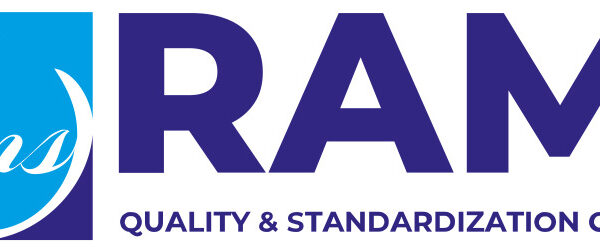In the thriving city of Houston the pools offer not just an indulgence, they’re an integral part of the city’s life. In the summer, scorching Texas temperatures draw people and families into the warm embrace of their own backyards or swimming pools. Have you stopped to consider how these gorgeous pools maintain safe, clean all year round? Making sure that the water is of high quality within Houston pools doesn’t mean just simply adding some chlorine and then calling it quits. It’s a complicated procedure that involves technology, science, and lots of commitment. We’ll take a deeper look at the challenges, practices and new technologies that keep high standards for water quality for Houston swimming pools.
Understanding the Importance of Water Quality in Houston Pools
In order to maintain the proper quality of water for Houston swimming pools doesn’t only concern appearance, but also an issue of security and health. The pools serve as places to meet and are a popular place to hang out, particularly in a city such as Houston where temperatures during summer are often above 100 degrees. Since so many people use the same pool, there is the possibility of contamination by algae, bacteria, as well as other microorganisms that are harmful to human health. Furthermore, unbalanced chemicals can cause inflammation of the skin, eye irritation as well as respiratory problems. This is why ensuring that water is clean isn’t an option, it’s a necessity.
The Role of Filtration Systems in Clean Pool Water
Each swimming pool that is located in Houston depends heavily on the filtering system that traps dirt, debris and unwelcome particles. If it’s a Sand, cartridge or diatomaceous Earth (DE) filter the system has to function smoothly for a specific amount of time per day to ensure that the water circulates properly. A constant flow of water reduces stagnation, and also helps spread chemicals equally. In the absence of proper filtration, the best chemically balanced water could soon become a breeding place for harmful organisms. Houston pools frequently face difficulties because of frequent storms as well as the pollen-rich springs. This makes proper filtration important.
Chlorine and Chemical Balancing: More Than Just a Quick Fix
The most popular method to ensure the quality of water is to add chlorine. This potent disinfectant eliminates the bacteria that cause algae to grow. In Houston swimming pools keeping the proper chemical balance may be difficult due to the high rate of usage and fluctuations in the weather. Alongside chlorine levels, pH as well as alkalinity and the hardness of calcium must be controlled. If pH is excessively high or low this can affect chlorine efficacy and create discomfort for swimmers. A regular testing schedule, often multiple times per week — is the only option to be sure that the chemical levels are within the appropriate zone.
How Weather Impacts Water Quality in Houston
The subtropical climate in Houston creates an additional dimension of difficulty in the management of water quality. The heavy rainfall may dilute chemical compounds and alter pH levels and also introduce pollutants such as organic matter and dirt into the water. The flipside is that extreme heat may cause chlorine to evaporate faster, which makes it difficult to keep an appropriate equilibrium. Homeowners and pool managers should be aware of this by changing procedures quickly. This seasonal change also implies the Houston swimming pools require different maintenance strategies all through the season, with the summer months being the most challenging.
Advanced Testing Techniques for Reliable Water Analysis
The days are gone of using only test strips for water testing. Today numerous Houston pool owners have turned to water testing equipment that is digital and mobile apps to provide higher-quality results. Certain facilities are even using automated systems that constantly examine water chemistry and inform employees when they need to make adjustments. The technology reduces errors made by humans and permits rapid response time. By using real-time information the pool’s operators are able to make better choices and steer clear of problems before they develop into serious issues.
Staff Training and Operational Protocols
However advanced the technology, human supervision is still vital. For commercial and public Houston pool employees undergo training to learn about water chemistry, operations of the equipment and security protocols. Weekly checklists and logs make sure that all aspects of maintenance for the pool follows the schedule. If you own a private pool, understanding the fundamentals of maintaining your pool can help avoid many problems later on. Being able to recognize indications of imbalance, like cloudy waters or strong smells of chemicals–can result in quicker resolutions as well as safer swimming spaces.
Environmental Considerations and Sustainability Practices
In light of the growing concern for environmental issues, a lot of Houston swimming pools are implementing green maintenance methods. Saltwater systems for instance produce chlorine on their own and need less chemical additives. The covers on pools decrease water evaporation, and also keep particles out. Variable-speed pumps use less energy. A few facilities are looking into options to use Ozone and UV systems for supplementary sanitizers in order to decrease the dependence on chlorine. These environmentally sustainable options not only help the environment but can also result in cost savings over the long term as well as improved the quality of water.
Community Regulations and Inspections
In Houston public pools, they have to follow strict guidelines established by the city’s wellness department. Inspections regularly check for compliance to these guidelines. Failure to adhere to them could cause fines and even closure for a short period of time. These rules cover everything from clarity of water to chemical levels, to signs and emergency apparatus. Regularly scheduled audits and unexpected inspections help ensure that there is a sense of accountability. Residents who use community pools These measures give assurance that pools are secured and maintained.
The Future of Water Quality Management in Houston Pools
The pace of innovation is changing the way Houston swimming pools deal with the water quality. Automated systems for chemical dosing, solar-powered filter units, and AI-driven analytical instruments are transforming the way we manage our water. As technology advances, also will our capacity to keep cleaner and safer swimming pools that require less manual effort. Furthermore, the ongoing study of cleaner chemicals, and green materials could lead to a time that is efficient and sustainable.
Conclusion
The maintenance of water quality for Houston swimming pools is an extensive project that involves chemistry technology and a commitment to health for the community. From the filtration system to the chemical balancing process each element plays an important role to keep the pool healthy and clean. The particular climate in Houston is a testament to the value of all these initiatives. By undergoing continuous training, technological developments, as well as rigorous oversight by regulators, Houston pools offer a safe, relaxing and rejuvenating escape for thousands of citizens. Therefore, next time you take a dip in that clear pool, keep in mind that it was more than chlorine in order to create this happen.
Frequently Asked Questions
How frequently should the water of Houston pools be tested?
It is recommended that water be tested two or three times per week in residential pools. Community and commercial Houston pools might require weekly or multiple tests every day, particularly at times of high usage.
Does rain affect the quality of pool water drastically?
Absolutely. The pH of the water can be altered by rainwater and chemical levels that are dilute as well as introduce organic matter as well as contaminants. In the event of heavy rains it is crucial to retest and balance the water when required.
Are saltwater pools superior to chlorine pools?
Located in Houston both have advantages and disadvantages. Saltwater systems are generally more gentle on the eye and skin, and need lesser maintenance on a daily basis. But, they can be expensive to put in and may cause damage to certain devices.
How can I best keep algae out of Houston pool?
Consistent chemical monitoring and effective water filtration is essential. A regular brushing of the pool’s walls, and shock treatment whenever needed may also keep algae away particularly in hot humid Houston conditions.





Leave a Reply
You must be logged in to post a comment.